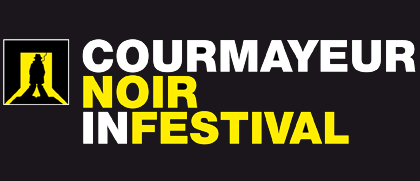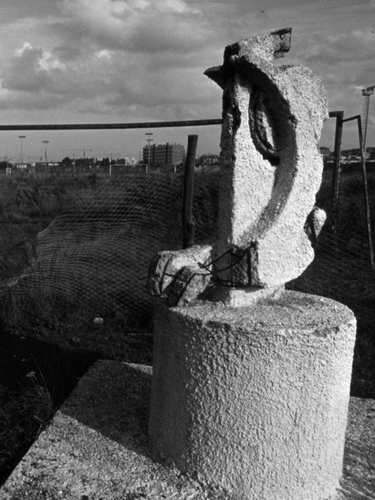The Long Italian Night
By Marina Fabbri
In his fascinating reconstruction of the convoluted story of the death of Pier Paolo Pasolini, the writer and director David Grieco meticulously investigates all the trails that, amazingly enough, connect crimes committed in our country from the 1960s to the present day with Italy’s major political figures and criminal overlords. Pasolini and his ‘elimination’ are the fulcrum of a spiral of sinister events that range from the death of ENI head Enrico Mattei and the disappearance of the investigative reporter Mauro De Mauro soon thereafter to the bombing attacks that made up the ‘strategy of tension’ and other forms of both right-wing and left-wing terrorism. A tangled web that continued to be woven after the death of the poet who delved most inconveniently into Italy’s unsolved mysteries.
In his fascinating reconstruction of the convoluted story of the death of Pier Paolo Pasolini, the writer and director David Grieco meticulously investigates all the trails that, amazingly enough, connect crimes committed in our country from the 1960s to the present day with Italy’s major political figures and criminal overlords. Pasolini and his ‘elimination’ are the fulcrum of a spiral of sinister events that range from the death of ENI head Enrico Mattei and the disappearance of the investigative reporter Mauro De Mauro soon thereafter to the bombing attacks that made up the ‘strategy of tension’ and other forms of both right-wing and left-wing terrorism. A tangled web that continued to be woven after the death of the poet who delved most inconveniently into Italy’s unsolved mysteries.
In Grieco’s book, Pasolini’s killer, Giuseppe Pelosi, still changing his story forty years on, is tracked down in Ostia, where Pasolini met his end forty years ago, keeping company with witnesses to the murder back in the day, living in the slum called the ‘Idroscalo’. Pelosi, just 17 at the time, is employed by the now infamous cooperative called ‘June 29th’, run by Salvatore Buzzi and Massimo Carminati, the ‘samurai’ of Suburra, the novel by Carlo Bonini & Giancarlo De Cataldo that recounts the misdeeds of Ostia’s mafia and the tragedy that has found no closure since that far-off November 2, 1975.
Ostia, with its squatters and its slum by the sea, its Roma loan sharks and mobster drug dealers whose tentacles tighten around members of Rome’s political class. Ostia, ‘freed’ by the bulldozers sent by City Hall to restore legality on the beachfront. Ostia saw who killed Pasolini and looked the other way. Maurizio Abbatino was also at the scene of the crime on that November 2, a rising star in the notorious Magliana Gang, and now a regular at the bar run by Ubaldo De Angelis, yet another witness to the murder. Not to mention the ‘Catania connection’ which linked Sicily’s mafia to the crime and many others before and since, just as involved in them all as the neo-fascists were.
In his editorial entitled "The Power Vacuum in Italy", which appeared in the Corriere della Sera on February 1, 1975, Pasolini observed, "As everyone knows by now, we are no longer facing ‘modern times’ but a whole new age in human history, a history measured in millenarian terms. Italians could not have reacted any worse to such a historical trauma. In a few short years, especially in central and southern Italy, they have turned into a population of degenerates, ridiculous, monstrous, and criminal. A walk down the street will bear this out. But naturally, to understand how people change, you need to love them. And I, unfortunately, had loved the people of Italy, above and beyond considerations of power (to which I was in fact firmly opposed) as well as populist and humanitarian concerns. It was a genuine affection, rooted in my way of being. I therefore saw ‘with my senses’ how an unbridled consumerism reshaped and warped the consciences of the Italian people, doing irreversible damage."
Today, Pasolini’s words are rightly deemed prophetic, as we have arrived at the bleak denouement of that identity-destroying process triggered by globalization, in a world in which profit is king. Perhaps the war which we are into up to our necks today, more and more total, more and more confused, actually springs from a violent reaction to that loss of identity and belonging, which was once ideological and is now usually religious, meant to save us from the nihilism of the present day, or, in the worst case scenario, console us for the extinction of human rights and well-being for an unforgivably large part of the earth’s population.
To confine the discussion to our own "uncivilized society", another writer, Carlo Lucarelli, offers up an even grimmer verdict that happens to coincide with Pasolini’s prophecy - and Pasolini surely inspired Lucarelli as he did many other Italian writers. In his new book about Pasolini’s murder, Lucarelli declares, "The dead speak. […] Cut down on a soccer field with their noses shoved in the grass, the dead always speak. ‘Silence’, they say." On the contrary, it is about that silence that we at Courmayeur Noir want to speak.


